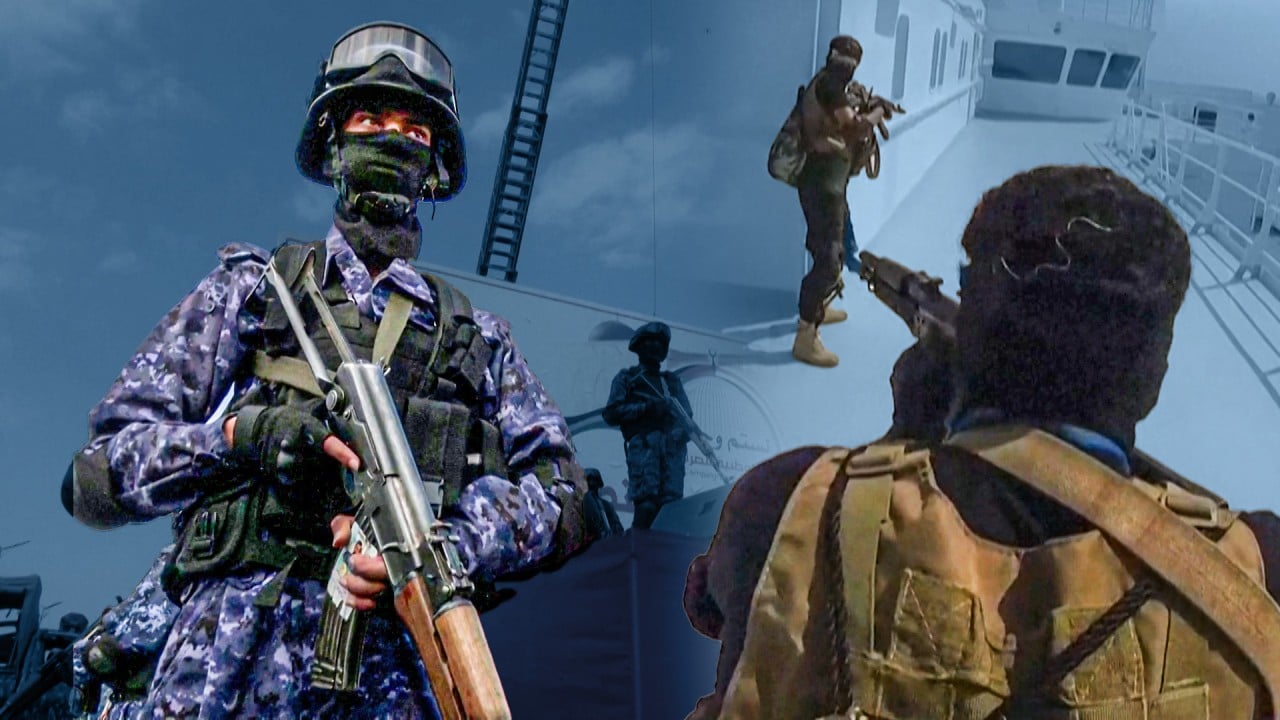[ad_1]
This has triggered a significant disruption to world service provider site visitors that transits the Suez Canal and enters the Indian Ocean by the Red Sea and the slim Bab-el-Mandeb strait between Yemen on the Arabian Peninsula and Djibouti and Eritrea within the Horn of Africa.
About 12 per cent of world commerce passes by the Bab-el-Mandeb and all the key economies of the world – significantly China, Japan and India – are depending on the security and stability of those waters.
To keep away from the Houthi menace, many vessels have chosen to take the longer route across the Cape of Good Hope (the southern tip of Africa) to sail from Europe to Asia, thereby including considerably to each delivery prices and transit instances.
While the security and safety of vital sea traces of communication is a world good, the style by which the key powers have reacted to those assaults is instructive.
China and Russia – everlasting members of the UN Security Council – have a distinct political place from that of the US in relation to the Israeli assaults on Gaza however share a standard financial goal in guaranteeing that service provider delivery just isn’t held hostage by Houthi calls for. In gentle of China and Russia’s stance, some ships are promoting their “all-Chinese-crew” or their Russian affiliation within the hope of avoiding Houthi assaults.
Currently, the US naval operation towards the Houthi rebels is being supported by the UK, with Australia, Bahrain, Canada and the Netherlands offering non-operational assist. It is instructive that the opposite main US/Nato allies akin to France and Germany haven’t signed as much as be a part of this coalition. Both India and Japan, who’re Quad members, have been equally cautious and haven’t joined the US-led operation.
Should the Houthi risk be considered solely by a political filter, within the context of the broader Middle East battle, or ought to main powers discover different means to make sure compliance with the UN Security Council decision?
I imagine safeguarding service provider ships and their crew from such assaults is a world duty and this shouldn’t be disaggregated into selective political clustering.
China and India are among the many world’s high 5 economies by measurement and are credible Asian naval powers. They are each in search of to play a larger position within the maritime area and are important stakeholders in guaranteeing the security and safety of the worldwide commons, given their very own dependence on the ocean traces of communication.
Why China is unlikely to join US-led force against Houthi attacks in Red Sea
Why China is unlikely to join US-led force against Houthi attacks in Red Sea
The world partnership that emerged in 2008 to take care of the Somali piracy problem is a template that would provide some cues about tips on how to handle the Houthi conundrum.
While each China and India won’t be part of a US-led army grouping, it will be short-sighted to stay passive to the Houthi assaults. Left unchecked, the Indian Ocean may witness an anomalous scenario, whereby a non-state entity (albeit with state assist) can impose the equal of a regional embargo with no navy worthy of point out.
The Houthi use of unmanned armed drones and missiles poses a brand new hybrid warfare problem to conventional naval energy, and the cost-effectiveness of utilizing costly naval platforms and ordnance to include a non-state entity must be objectively reviewed.
Unlike the Somali piracy situation, the place all nations had been on the identical web page, the Houthi assaults are linked to Israel and Palestine and therefore there’s dissonance among the many main powers about tips on how to reply. But if ethics could be interpreted as enlightened self-interest, there’s a case to view sure world points – akin to local weather change and good order at sea – as moral imperatives.
There could be no selective pursuit of particular person pursuits in relation to world service provider delivery. The adage that every one boats will rise or sink collectively is doubly related on the subject of freedom of navigation and good order at sea. The Houthi problem must be handled in a consensual method and can check the perspicacity of the key Asian powers as 2024 unspools.
Commodore C. Uday Bhaskar is director of the Society for Policy Studies, an unbiased assume tank primarily based in New Delhi
[adinserter block=”4″]
[ad_2]
Source link

